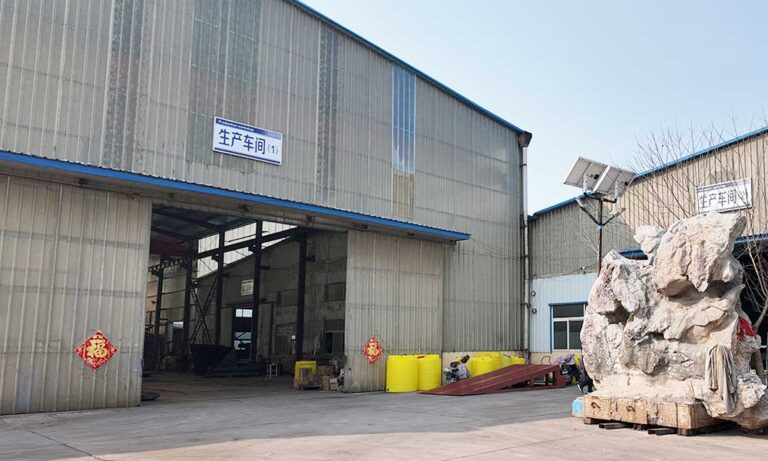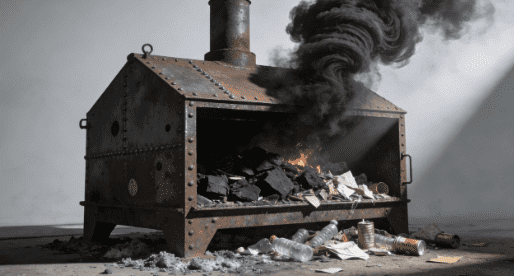Welcome to My Blog! 🌟
I’m so glad you’re here! Before we jump into the exciting content, I’d love for you to connect with me on my social media platforms. It’s where I share extra insights, interact with our amazing community, and post regular updates. Here’s how you can join the conversation:
📘 Facebook: Follow me on Facebook for more updates
Now, let’s dive into the journey ahead. I hope you find everything here both engaging and valuable. Together, let’s explore, learn, and grow! 🚀
Table of Contents
Introduction
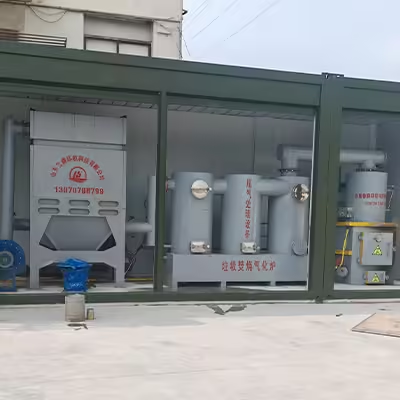
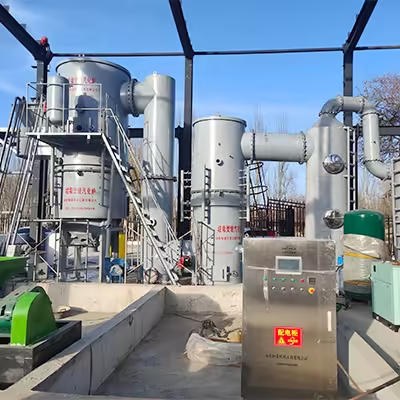
When it comes to waste disposal, particularly for businesses that produce large quantities of waste, finding the right waste management solution is crucial. One effective method for managing waste is by using a commercial incinerator. These machines are designed to handle the burning of solid waste, converting it into ash, gases, and heat. However, choosing the best commercial incinerator for your business requires careful consideration of several factors. In this guide, we will walk you through the essential factors to consider when purchasing a commercial incinerator, ensuring you make the right choice for your waste disposal needs.
Understanding Commercial Incinerators
Industrial incinerators, also known as high-temperature furnaces, are essential for managing waste materials by converting them into minimal ash and gases. These systems are widely used in sectors such as healthcare, manufacturing, and food processing, where large quantities of waste are generated regularly. By incinerating waste, companies can significantly reduce landfill usage, minimize storage needs, and promote better hygiene in their operations.
Before deciding on the purchase of an industrial incinerator, it’s essential to comprehend how these systems work, their capacities, and their limitations. These waste management machines come in various configurations, with distinct features tailored to meet diverse business needs.
Key Considerations When Choosing a Commercial Incinerator
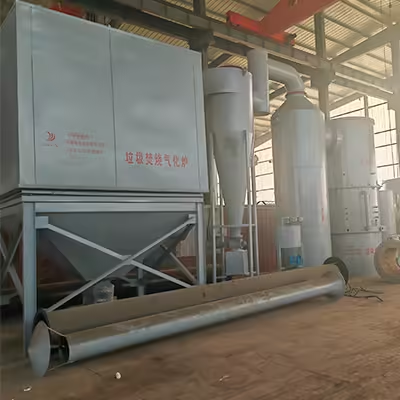
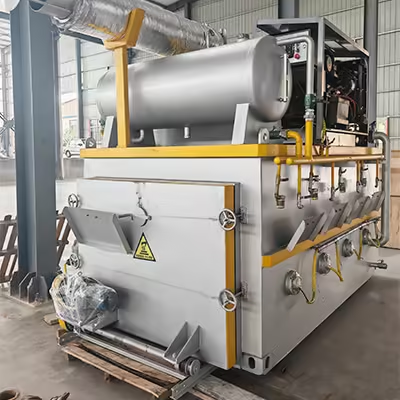
Selecting the most suitable waste disposal incinerator requires evaluating several key factors that directly impact its efficiency, operational costs, and compatibility with your specific needs. Below are the primary aspects to consider when choosing an incinerator for your business:
1. Waste Volume and Type
One of the first factors to evaluate is the amount of waste your business generates on a daily or weekly basis. Different incineration units are designed to handle various waste volumes, making it critical to choose a model that aligns with your operations. Additionally, the type of waste produced—whether medical, hazardous, industrial, or food-related—will influence the type of incinerator required. Certain systems are built to handle specific types of waste, while others offer more flexibility for handling a variety of materials.
2. Temperature and Efficiency
Another important consideration is the operating temperature of the incineration system. The temperature at which waste is burned affects how effectively it is reduced to ash and the overall energy consumption. Highly efficient systems will minimize energy usage while maximizing the effectiveness of waste reduction. When evaluating these machines, look for models that offer high operating temperatures to ensure thorough disposal of waste. However, also ensure that these systems are designed to be energy-efficient, as this will keep your long-term operational costs down.
3. Environmental Impact
In today’s environmentally-conscious world, it’s increasingly vital to consider the environmental impact of your waste management system. Many incinerators are equipped with advanced filtration systems and scrubbers designed to minimize harmful emissions such as toxic gases, particulate matter, and odors. Choose a unit that complies with local environmental regulations and that minimizes its impact on the surrounding area. This will not only help your company avoid regulatory fines but also ensure that your business maintains its commitment to sustainability.
4. Cost of Operation and Maintenance
While the upfront cost of a commercial incinerator is an important factor, don’t forget to consider its operational and maintenance costs. Some models may be cheaper to buy but require more maintenance, leading to higher long-term expenses. It’s also essential to factor in fuel consumption, as certain models may use more energy than others, impacting your business’s operating costs.
5. Safety Features
Safety is a critical concern when handling high-temperature machinery. It’s essential to choose an incinerator with built-in safety features such as automatic shut-off mechanisms, temperature regulation systems, and fire suppression devices. Furthermore, regular maintenance and proper staff training are crucial to ensuring safe operation and minimizing the risk of accidents. Consider systems that offer comprehensive safety protocols to ensure the wellbeing of both your employees and the surrounding environment.
Comparing Commercial Incinerators: A Table of Options
The table below compares different types of commercial incinerators based on key features such as waste capacity, temperature range, fuel type, and maintenance requirements. This comparison will help you make an informed decision based on your specific business needs.
| Incinerator Model | Waste Capacity | Temperature Range | Fuel Type | Environmental Features | Maintenance Requirements |
|---|---|---|---|---|---|
| Model A | 500 kg/day | 800°C – 1000°C | Electricity | Low emissions, scrubbers | Moderate, regular servicing |
| Model B | 1000 kg/day | 1000°C – 1200°C | Gas | High-efficiency filters | High, requires frequent checks |
| Model C | 200 kg/day | 750°C – 900°C | Diesel | Minimal emissions | Low, easy maintenance |
| Model D | 750 kg/day | 800°C – 1100°C | Mixed fuels | Smoke and odor reduction | Moderate, occasional servicing |
Additional Factors to Consider
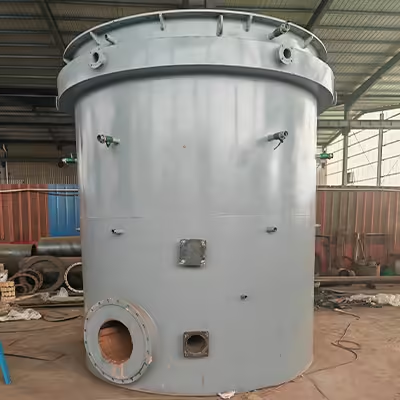
In addition to the key considerations mentioned above, there are other factors that could influence your purchasing decision:
Capacity Expansion
If your business is expected to grow or your waste output is likely to increase over time, consider opting for an incinerator that allows for capacity expansion. Some models come with modular designs or features that enable you to scale their capacity as needed.
Automation and Technological Features
Modern incineration units often come with automation options, allowing for more hands-off operation. This can save time and reduce labor costs in your waste disposal process. Look for systems that offer automated loading, combustion control, and ash removal for smoother operation.
Manufacturer Reputation and Customer Feedback
Before finalizing your purchase, it’s beneficial to research the manufacturer’s reputation in the market and check customer reviews. This research can give you insights into the performance and reliability of the product, as well as customer service quality. Choosing a trusted brand can significantly reduce the risk of encountering operational issues and ensure you receive adequate support if needed.
Conclusion
Choosing the right commercial incinerator is a critical decision for businesses that need efficient and safe waste disposal solutions. By considering the waste type and volume, temperature efficiency, environmental impact, costs, and safety features, you can find the perfect model for your business’s needs. Don’t forget to review multiple options and consult with experts to ensure you make the most informed choice.
FAQ
What is the difference between a commercial incinerator and a regular waste incinerator?
A commercial incinerator is designed to handle large volumes of waste and meet strict environmental regulations. It often features advanced technologies for emission control and energy efficiency, making it suitable for businesses with high waste outputs.
Can a commercial incinerator handle hazardous waste?
Yes, many commercial incinerators are specifically designed to handle hazardous waste. However, it’s important to choose an incinerator that meets the safety and regulatory requirements for disposing of such materials.
How long do commercial incinerators last?
The lifespan of a commercial incinerator depends on the model and how well it’s maintained. On average, a well-maintained incinerator can last anywhere from 10 to 20 years.
Are there any eco-friendly commercial incinerators?
Yes, many modern commercial incinerators are designed with eco-friendly features, such as emissions filters, scrubbers, and energy-saving technologies, to minimize their environmental impact.
How often does a commercial incinerator need maintenance?
Maintenance frequency depends on the model and the volume of waste being processed. Regular inspections, cleaning, and servicing are recommended to ensure optimal performance and safety.



